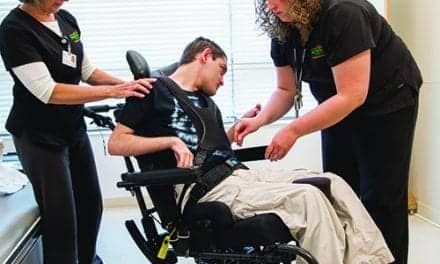Hospitalized patients who participate in a mobility program may be less likely to experience a decline in mobility post-release, according to a recent study.
The study, conducted by University of Alabama at Birmingham scientists and published in the Journal of the American Medical Association, looked at 100 hospitalized patients 65 years of age or older who participated in a mobility program during their stay at a hospital, compared to patients who did not participate.
In the single-blind randomized trial conducted at the Birmingham Veterans Affairs Medical Center, the patients in the mobility program were assisted with walking or moving around up to twice daily with a behavioral strategy used to encourage mobility, according to a media release from University of Alabama at Birmingham.
The patients who participated in the mobility program were able to maintain their prehospitalization mobility status in the month following release. However, those who did not participate experienced a clinical significant decline in their community mobility.
“It is important for patients to move around and try to do what they normally do by themselves while they are in the hospital,” says Cynthia Brown, MD, lead author and director of the UAB Division of Gerontology, Geriatrics and Palliative Care, in the release. “Our goal is to make sure that they leave the hospital with the same mobility as when they came in to maintain their quality of life.”
To prevent the loss of post-hospitalization mobility, Brown recommends an easy-to-implement mobility program that involves offering assistance with walking or moving from place to place at least twice a day, in conjunction with a behavioral intervention focused on goal setting and addressing mobility barriers, per the release.
[Source(s): University of Alabama at Birmingham, Newswise]





